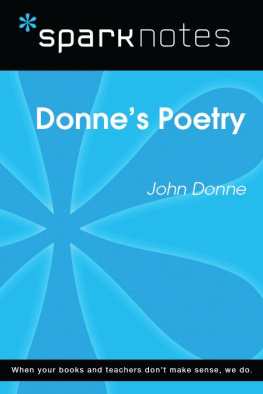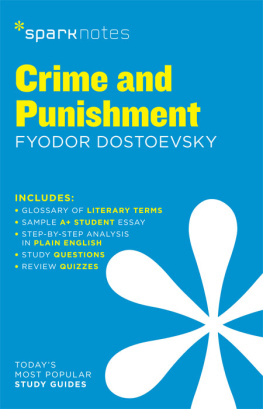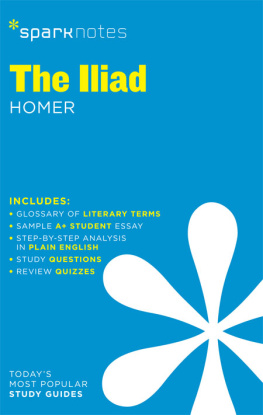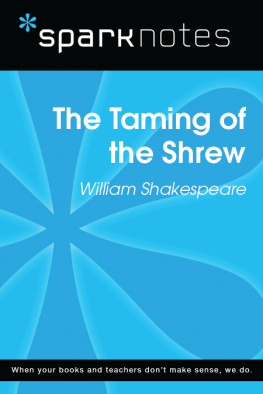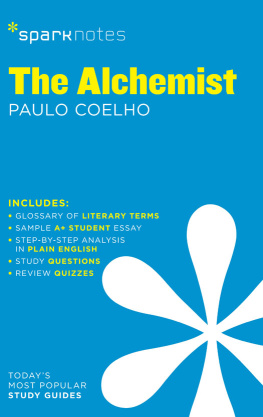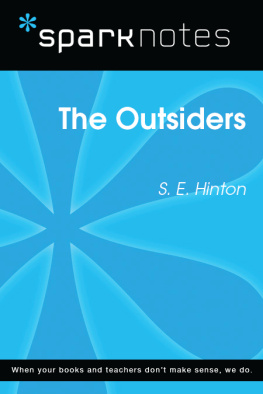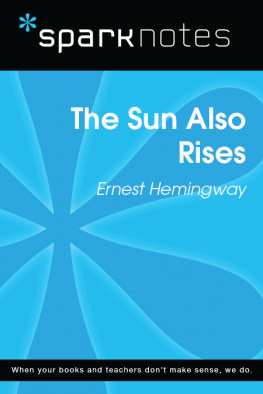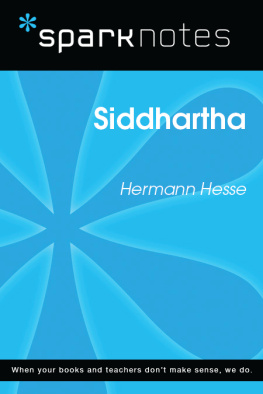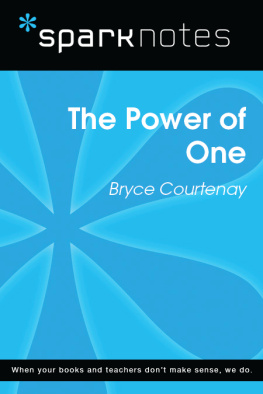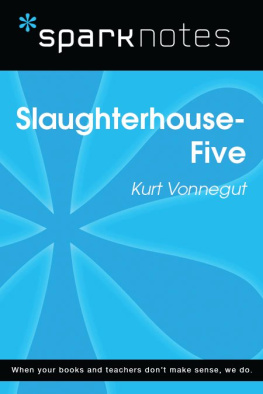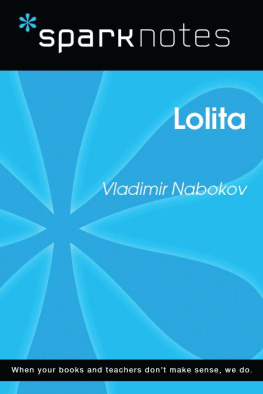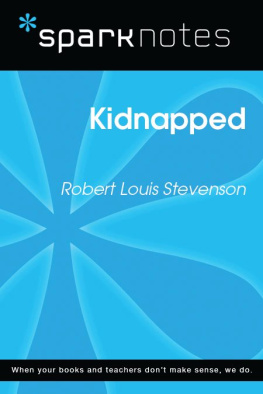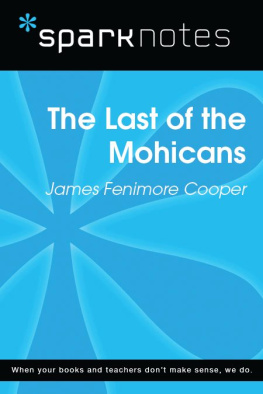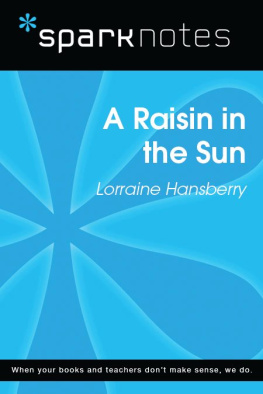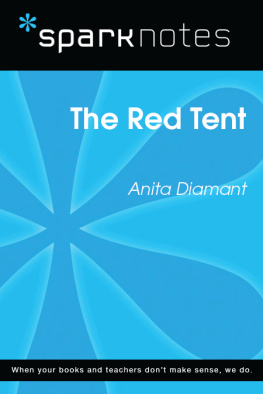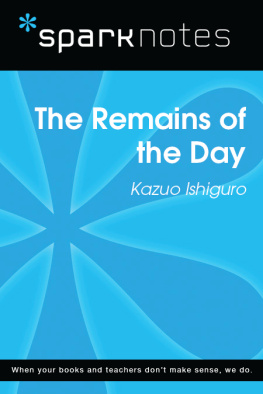SparkNotes - Donnes Poetry
Here you can read online SparkNotes - Donnes Poetry full text of the book (entire story) in english for free. Download pdf and epub, get meaning, cover and reviews about this ebook. year: 2014, publisher: Spark, genre: Humor. Description of the work, (preface) as well as reviews are available. Best literature library LitArk.com created for fans of good reading and offers a wide selection of genres:
Romance novel
Science fiction
Adventure
Detective
Science
History
Home and family
Prose
Art
Politics
Computer
Non-fiction
Religion
Business
Children
Humor
Choose a favorite category and find really read worthwhile books. Enjoy immersion in the world of imagination, feel the emotions of the characters or learn something new for yourself, make an fascinating discovery.
- Book:Donnes Poetry
- Author:
- Publisher:Spark
- Genre:
- Year:2014
- Rating:3 / 5
- Favourites:Add to favourites
- Your mark:
- 60
- 1
- 2
- 3
- 4
- 5
Donnes Poetry: summary, description and annotation
We offer to read an annotation, description, summary or preface (depends on what the author of the book "Donnes Poetry" wrote himself). If you haven't found the necessary information about the book — write in the comments, we will try to find it.
Making the reading experience fun!
Created by Harvard students for students everywhere, SparkNotes is a new breed of study guide: smarter, better, faster.
Geared to what todays students need to know, SparkNotes provides:
chapter-by-chapter analysis
explanations of key themes, motifs, and symbols
a review quiz and essay topics
Lively and accessible, these guides are perfect for late-night studying and writing papers.
Donnes Poetry — read online for free the complete book (whole text) full work
Below is the text of the book, divided by pages. System saving the place of the last page read, allows you to conveniently read the book "Donnes Poetry" online for free, without having to search again every time where you left off. Put a bookmark, and you can go to the page where you finished reading at any time.
Font size:
Interval:
Bookmark:

2003, 2007 by Spark Publishing
This Spark Publishing edition 2014 by SparkNotes LLC, an Affiliate of Barnes & Noble
All rights reserved. No part of this publication may be reproduced, stored in a retrieval system, or transmitted in any form or by any means (including electronic, mechanical, photocopying, recording, or otherwise) without prior written permission from the publisher.
Sparknotes is a registered trademark of SparkNotes LLC
Spark Publishing
A Division of Barnes & Noble
120 Fifth Avenue
New York, NY 10011
www.sparknotes.com /
ISBN-13: 978-1-4114-7486-4
Please submit changes or report errors to www.sparknotes.com/.
10 9 8 7 6 5 4 3 2 1
John Donne was born in 1572 to a London merchant and his wife. Donnes parents were both Catholic at a time when England was deeply divided over matters of religion; Queen Elizabeth persecuted the Catholics and upheld the Church of England established by her father, Henry VIII. The subsequent ruler, James I, tolerated Catholicism, but advised Donne that he would achieve advancement only in the Church of England. Having renounced his Catholic faith, Donne was ordained in the Church of England in 1615 . Donnes father died when he was very young, as did several of his brothers and sisters, and his mother remarried twice during his lifetime. Donne was educated at Harts Hall, Oxford, and Lincolns Inn; he became prodigiously learned, speaking several languages and writing poems in both English and Latin.
Donnes adult life was colorful, varied, and often dangerous; he sailed with the royal fleet and served as both a Member of Parliament and a diplomat. In 1601 , he secretly married a woman named Ann More, and he was imprisoned by her father, Sir George More; however, after the Court of Audiences upheld his marriage several months later, he was released and sent to live with his wifes cousin in Surrey, his fortunes now in tatters. For the next several years, Donne moved his family throughout England, traveled extensively in France and Italy, and attempted unsuccessfully to gain positions that might improve his financial situation. In 1615 , Donne was ordained a priest in the Anglican Church; in 1621 , he became the Dean of St. Pauls Cathedral, a post that he retained for the rest of his life. A very successful priest, Donne preached several times before royalty; his sermons were famous for their power and directness.
For the last decade of his life, before his death in 1630 , Donne concentrated more on writing sermons than on writing poems, and today he is admired for the former as well as the latter. (One of his most famous sermons contains the passage beginning, No man is an island and ending, Therefore ask not for whom the bell tolls; it tolls for thee.) However, it is for his extraordinary poems that Donne is primarily remembered; and it was on the basis of his poems that led to the revival of his reputation at the beginning of the th century, following years of obscurity. (The renewed interest in Donne was led by a new generation of writers at the turn of the century, including T.S. Eliot.) Donne was the leading exponent of a style of poetry called metaphysical poetry, which flourished in the late sixteenth and early seventeenth centuries.
Metaphysical poetry features elaborate conceits and surprising symbols, wrapped up in original, challenging language structures, with learned themes that draw heavily on eccentric chains of reasoning. Donnes verse, like that of George Herbert, Andrew Marvell, and many of their contemporaries, exemplifies these traits. But Donne is also a highly individual poet, and his consistently ingenious treatment of his great themethe conflict between spiritual piety and physical carnality, as embodied in religion and loveremains unparalleled.
John Donne, whose poetic reputation languished before he was rediscovered in the early part of the twentieth century, is remembered today as the leading exponent of a style of verse known as metaphysical poetry, which flourished in the late sixteenth and early seventeenth centuries. (Other great metaphysical poets include Andrew Marvell, Robert Herrick, and George Herbert.) Metaphysical poetry typically employs unusual verse forms, complex figures of speech applied to elaborate and surprising metaphorical conceits, and learned themes discussed according to eccentric and unexpected chains of reasoning. Donnes poetry exhibits each of these characteristics. His jarring, unusual meters; his proclivity for abstract puns and double entendres; his often bizarre metaphors (in one poem he compares love to a carnivorous fish; in another he pleads with God to make him pure by raping him); and his process of oblique reasoning are all characteristic traits of the metaphysicals, unified in Donne as in no other poet.
Donne is valuable not simply as a representative writer but also as a highly unique one. He was a man of contradictions: As a minister in the Anglican Church, Donne possessed a deep spirituality that informed his writing throughout his life; but as a man, Donne possessed a carnal lust for life, sensation, and experience. He is both a great religious poet and a great erotic poet, and perhaps no other writer (with the possible exception of Herbert) strove as hard to unify and express such incongruous, mutually discordant passions. In his best poems, Donne mixes the discourses of the physical and the spiritual; over the course of his career, Donne gave sublime expression to both realms.
His conflicting proclivities often cause Donne to contradict himself. (For example, in one poem he writes, Death be not proud, though some have called thee / Mighty and dreadful, for thou art not so. Yet in another, he writes, Death I recant, and say, unsaid by me / Whateer hath slipped, that might diminish thee.) However, his contradictions are representative of the powerful contrary forces at work in his poetry and in his soul, rather than of sloppy thinking or inconsistency. Donne, who lived a generation after Shakespeare, took advantage of his divided nature to become the greatest metaphysical poet of the seventeenth century; among the poets of inner conflict, he is one of the greatest of all time.
Donne incorporates the Renaissance notion of the human body as a microcosm into his love poetry. During the Renaissance, many people believed that the microcosmic human body mirrored the macrocosmic physical world. According to this belief, the intellect governs the body, much like a king or queen governs the land. Many of Donnes poemsmost notably The Sun Rising ( 1633 ), The Good-Morrow ( 1633 ), and A Valediction: Of Weeping ( 1633 )envision a lover or pair of lovers as being entire worlds unto themselves. But rather than use the analogy to imply that the whole world can be compressed into a small space, Donne uses it to show how lovers become so enraptured with each other that they believe they are the only beings in existence. The lovers are so in love that nothing else matters. For example, in The Sun Rising, the speaker concludes the poem by telling the sun to shine exclusively on himself and his beloved. By doing so, he says, the sun will be shining on the entire world.
Donne draws on the Neoplatonic conception of physical love and religious love as being two manifestations of the same impulse. In the Symposium (ca. third or fourth century b.c.e .), Plato describes physical love as the lowest rung of a ladder. According to the Platonic formulation, we are attracted first to a single beautiful person, then to beautiful people generally, then to beautiful minds, then to beautiful ideas, and, ultimately, to beauty itself, the highest rung of the ladder. Centuries later, Christian Neoplatonists adapted this idea such that the progression of love culminates in a love of God, or spiritual beauty. Naturally, Donne used his religious poetry to idealize the Christian love for God, but the Neoplatonic conception of love also appears in his love poetry, albeit slightly tweaked. For instance, in the bawdy Elegy . To His Mistress Going to Bed ( 1669 ), the speaker claims that his love for a naked woman surpasses pictorial representations of biblical scenes. Many love poems assert the superiority of the speakers love to quotidian, ordinary love by presenting the speakers love as a manifestation of purer, Neoplatonic feeling, which resembles the sentiment felt for the divine.
Font size:
Interval:
Bookmark:
Similar books «Donnes Poetry»
Look at similar books to Donnes Poetry. We have selected literature similar in name and meaning in the hope of providing readers with more options to find new, interesting, not yet read works.
Discussion, reviews of the book Donnes Poetry and just readers' own opinions. Leave your comments, write what you think about the work, its meaning or the main characters. Specify what exactly you liked and what you didn't like, and why you think so.

